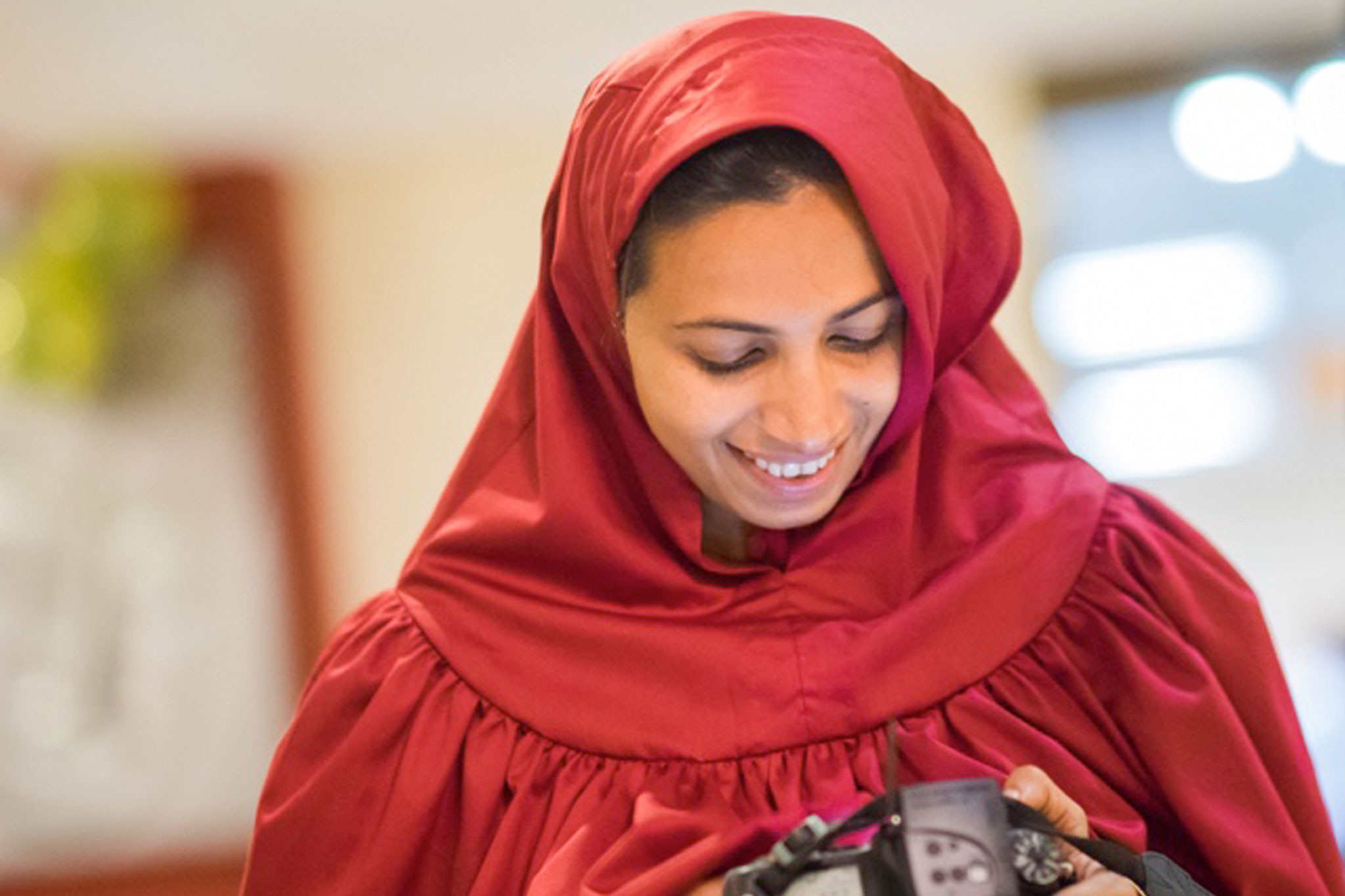My Purdah, My Pride
05 Oct, 2017

The zikr of Awliyah UllahSA reveals many things, teaches many lessons. We recite them to gain insight into our lives, and to make our lives better. The zikr of Maulatuna Umme SalamaSA, for example, elucidates the importance and significance of the purdah in Fatemi culture and religion, the very same culture and religion that Dawoodi Bohra Women adhere to and abide by today.
One day, RasulullahSA was residing in the house of Maulatuna Umme SalamaSA, and someone knocked on the door. RasulullahSA told Maulatuna Umme SalamaSA to open it, to which she replied how can I reveal myself before another by opening the door? Maulatuna Umme SalamaSA was of noble birth and the wife of RasulullahSA. Her desire to not reveal her beauty before another is a direct corollary of her honor and self-respect, her modesty, resulting from her noble lineage and association with RasulullahSA himself.
RasulullahSA told her not to worry, and that the one at the door would not disrespect her, that he would not enter until she had stepped inside, that it was actually Amirul Mumineen Ali ibne Abi TalibSA at the door. Comforted by these words, Maulatuna Umme SalamaSA unlocked the door, and Amirul MumineenSA gripped the edges of the door from the outside, keeping both flaps firmly closed, and waited until the footsteps of Maulatuna UmmeSA grew softer and softer. When Maulatuna Umme SalamaSA had stepped inside, Amirul MumineenSA then entered.
The desire of Maulatuna Umme SalamaSA to preserve her purdah was met with equal, if not more, respect by Rasulullah’sSA visitor. Amirul MumineenSA did not step inside the house once the door was unlocked. He did not peek inside to see if Maulatuna Umme SalamaSA had withdrawn. He waited, gripping the doors, keeping them closed, and listened for retreating steps that would indicate her departure. And only after no footsteps were heard, he entered.
The scion of Maulana Abu TalibSA, the cousin and successor of RasulullahSA, the husband of Maulatuna FatemaSA, the father of Imam HasanSA and Imam HusainSA upholds, nay exemplifies the tradition of respecting and honoring women. After defeating the King of Persia, Khosrau, in battle, Amirul MumineenSAbrings back his daughter Maulatuna Shere BanuSA in a palanquin, veiled and respected and honored. She is then wed to Imam HusainSA.
It is the same Maulatuna Shere BanuSA, who is escorted with the other sayyedaat, respectfully and gently, into the tents at Karbala. It is the same Maulatuna Shere BanuSA whose chaadar is snatched, her purdah desecrated by the malevolent hands of Yazeedi soldiers after the martyrdom of Imam HusainSA. It is the same Maulatuna Shere BanuSA who remembers all and weeps, broken hearted, devastated. “Do the principles and practice of respecting women not extend beyond the house of Nabi MohammedSA?”
It is a question it has become necessary to ask now. Now, because malicious and inflammatory rhetoric; popular rhetoric fueled by fabrications and misinformation, has the power to perceive what it wants, judge accordingly, and persecute without knowledge or accountability. When the band of usurpers wrongfully took the garden of Maulatuna FatemaSA, which RasulullahSA had left her as inheritance, she wore her burqa, surrounded herself with her ladies-in-waiting and walked to their gathering. She ordered a veil be pulled between her and the men, and spoke, in an irrefutable voice, against the injustice.
Her brave daughter Maulatuna ZainabSA, stood before Yazeed and his court of men, bare-headed, her veil snatched from her on the day Aashura, her modesty desecrated. But she moved to protect her nephew Imam Ali ZainulabedeenSA when Yazeed, ridden with hate, threatened to execute him. She declared that you will have to murder me first, and stayed the hands of the executioner.
Does the heart not burn? The modesty of her daughters most brutally devastated in Karbala at the hands of Yazeed and his armies. After slaying the men, the hideous soldiers burnt the tents, ripped the chaadars (burqas) off the heads of the remaining women, and openly paraded them in the market-places of Shaam and Kufa. How can we not burn when we learn of what was done to our sayyedaat, what is still being done?
The sanctity of our homes violated. Our mothers and daughters, their veils torn, even snatched; our privacy shattered ever so hypocritically in the name of human dignity; our modesty ever so malevolently undone and paraded in the market places of the world. We speak now, because this body of lies attacks us, violates our purdah in the most brutal way, and deems it justifiable to do away with our very basic human rights.
We speak now, because we were mistaken to believe that our right to religion was secure, and protected by the constitution of India. We speak now, because it is a matter of modesty and respect. We speak now because the hand of malevolence and hate, raised above our heads, ready to strike, must be stayed.